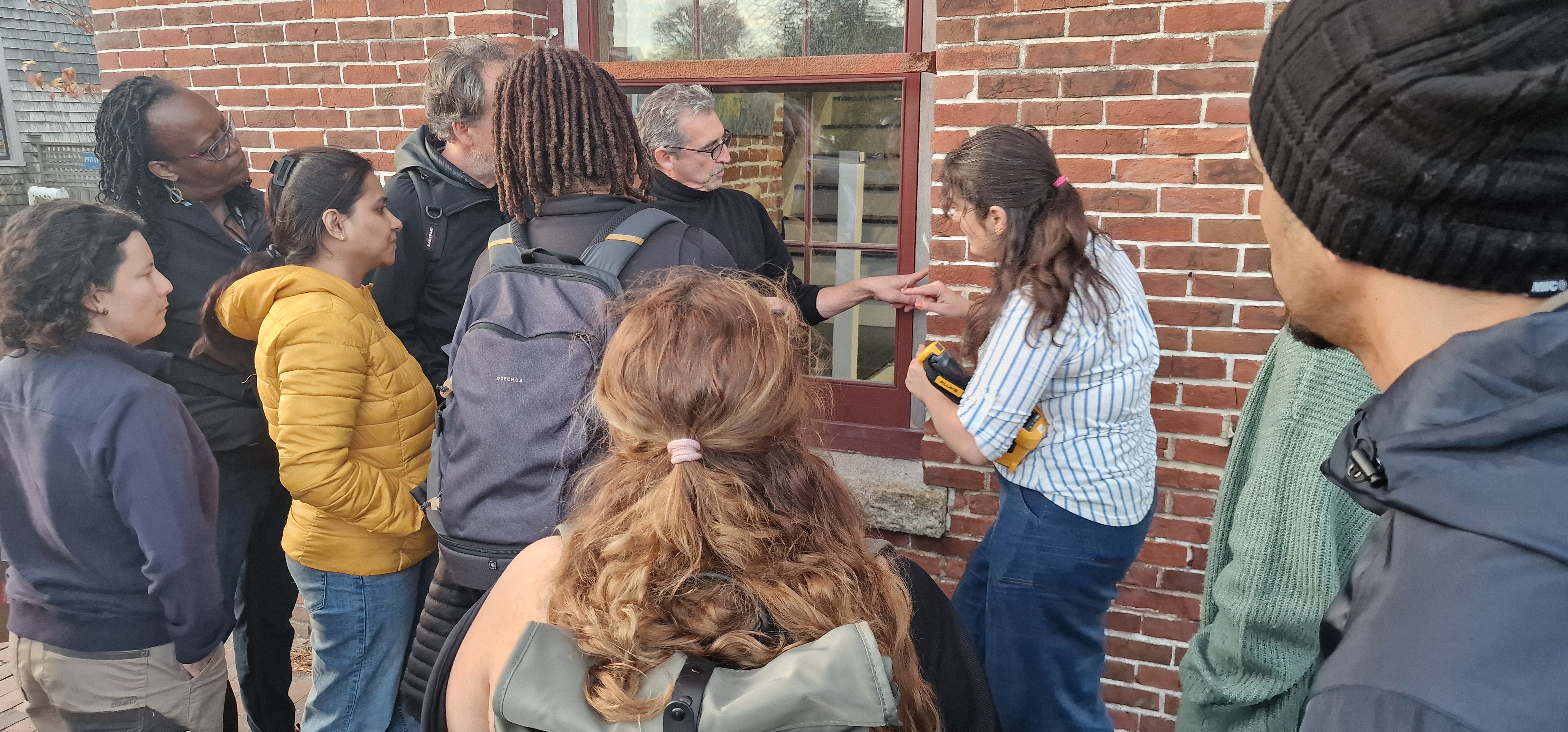Organizers
Nantucket Historical Association (NHA) in collaboration with ICCROM, Integrated Conservation Resources (ICR-ICC)
Background and Objectives of the Course
The 2025 International Training Course on Reducing Risks and Building Resilience for Sustainable Built Heritage Conservation and Management will use the knowledge gained during the 2023 internship programme hosted in conjunction with the Nantucket Historical Association (NHA), ICCROM, Integrated Conservation Resources (ICR-ICC), and the University of Pennsylvania followed by the first ITC organized in October-November 2024.
Located off the Eastern coast of Massachusetts, participants used the island of Nantucket as an interactive case study to conduct research and produce a vulnerability and risk analysis on the impacts of climate and disaster risks for four of the island’s notable historic sites. The coastal island is heavily impacted by climate change, specifically rising temperatures and sea levels, contributing to soil erosion and flooding from worsening pluvial events such as heavy rains and hurricanes.
This year’s ITC will focus on capacity building for heritage professionals. Participants will learn tools and methodologies for assessing and managing heritage sites impacted by increasing climate and disaster risks. Onsite training will be centred around the ongoing activities on Nantucket. Participants will learn about the challenges and good practices in the area. Participants will review and analyze environmental monitoring data collected at heritage sites throughout Nantucket, and work with local experts and professionals to correlate data and understand risks and mitigation strategies.
Lectures will cover core competencies for climate and disaster risk assessments for built heritage and strategies for mitigation, adaptation and monitoring, as well as the integration of climate and disaster risk in heritage preservation and current governance.
Fieldwork will include tours and site visits, architectural and material documentation and conditions assessments of heritage sites, and insitu review of material failures related to climate risks. Participants will learn selected field and laboratory techniques for material assessment, and application of these techniques towards broader vulnerability assessments.
The main objectives include:
- To build the capacity of mid-career professionals from heritage and environmental fields to assess climate and disaster risks to built heritage.
- To develop appropriate monitoring, mitigation and adaptation strategies at site level as part of conservation and management practice.
- To build an international network of heritage professionals skilled in climate action and disaster risk management for built heritage.
At the conclusion of the course, participants will receive a certificate of completion.
Methodology
The course will take place onsite, with the island of Nantucket serving as an open-air laboratory. The course will include thematic lectures, hands-on workshops, site visits and fieldwork throughout the four weeks onsite. Participants will work on applying learned material to both individual case studies from their home countries presented in this application and local case studies, under the guidance of course mentors. Participants will present their work during the final presentation at the conclusion of the course.
Participants
The participants will host up to 12 mid-career professionals from around the world working in heritage, disaster risk management and the climate sector. Each participant should be involved with a climate-impacted cultural site, which will factor into the selection process. Their work will be integrated into the course, allowing them to share and refine their approaches to assessment and solutions throughout the four weeks.
Course Fee
Free
Travel, Accommodation and Living Expenses
Participants will be responsible for their own round-trip travel costs to and from Nantucket. Accommodation will be arranged by the organizers.
Application Requirements
Please use the online course application form
In order to finalize your application, the following digital files will be required when completing the online form:
- Portrait photo (allowed formats: pdf doc docx jpg jpeg png tif tiff with a maximum file size of 5 MB)
- Official endorsement [insert hyperlink] (allowed formats: pdf doc docx jpg jpeg png tif tiff with a maximum file size of 5 MB)
- Curriculum Vitae (allowed formats: pdf doc docx with a maximum file size of 5 MB)
- A brief report (3-5 pages) as indicated below:( allowed formats: pdf doc docx with a maximum file size of 5 MB)
Please share a case study about the impact of climate change on built heritage in your context. Please include a brief description, including location, nature of climate-related event, your level of involvement, and any key lessons learned. This case study will be discussed during the course and expanded based on course materials.
Interested candidates are invited to submit their applications by Friday, 31 May 2025 (11:59 PM – CET)
Applications will be reviewed in the two weeks following the submission deadline. Interviews will be conducted for short-listed participants at that time.
If you encounter any issues submitting your application or if you have any questions concerning the course, please email us at: ITC-Nantucket2025@iccrom.org

